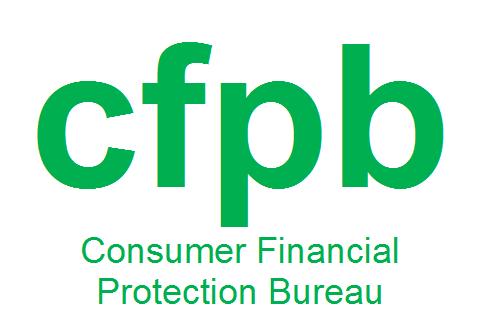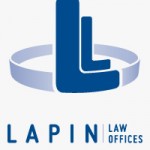By: Jeffrey Lapin
Parts 1 and 2 of this Social Media and Debt Collection Series discussed Facebook and Twitter and the recent United Kingdom’s ban against debt collectors using social networking sites. This final Part will discuss the current state of United States’ law, its applicability to social networks and offer some recommendations as to what can be done to protect debtors and still permit debt collectors to collect legitimate debts in a lawful manner.
UNITED STATES FEDERAL LAW
The United States’ Federal Trade Commission (FTC) Bureau of Consumer Protection – Division of Financial Practices and the Consumer Financial Protection Bureau (CFPB) are the primary federal agencies that regulate and enforce debt collection. The Fair Debt Collection Practices Act (FDCPA) (full text available here) is the primary U.S. law protecting consumers in the United States against harassing, abusive and unfair debt collectors. While the FDCPA does not directly mention social media or networking, there is existing language that should apply:
§ 803. Definitions (15 USC 1692a)
(2) The term “communication” means the conveying of information regarding a debt directly or indirectly to any person through any medium.
This section would seemingly include social media posts as “communication” is not limited to print or voice.
§ 805. Communication in connection with debt collection (15 USC 1692c)
(b) COMMUNICATION WITH THIRD PARTIES. Except as provided in section 804, without the prior consent of the consumer given directly to the debt collector, or the express permission of a court of competent jurisdiction, or as reasonably necessary to effectuate a post-judgment judicial remedy, a debt collector may not communicate, in connection with the collection of any debt, with any person other than a consumer, his attorney, a consumer reporting agency if otherwise permitted by law, the creditor, the attorney of the creditor, or the attorney of the debt collector.
This section should apply to general social media posts by a debt collector, such as on a debtor’s Facebook Wall or a public Tweet, as the information would be viewable to third persons. However, it would not likely apply to private messages sent directly to a debtor.
§ 806. Harassment or abuse (15 USC 1692d)
A debt collector may not engage in any conduct the natural consequence of which is to harass, oppress, or abuse any person in connection with the collection of a debt.
This section should apply to any harassing, oppressive or abusive conduct by a debt collector regardless of how done, including a posting on a social media site.
§ 809. Validation of debts (15 USC 1692g)
(a) Within five days after the initial communication with a consumer in connection with the collection of any debt, a debt collector shall, unless the following information is contained in the initial communication or the consumer has paid the debt, send the consumer a written notice containing-
Many debt collectors typically provide the information required by this provision in their initial communication with a debtor. As this section currently reads, a debt collector could not send this information through social media as the provision specifically requires a “written notice”, which is not otherwise defined as thus would likely only include a printed notice, not anything sent electronically.
DEBTOR SUING FOR FACEBOOK POSTINGS
There has been at least one lawsuit, that has drawn public attention, by a debtor against a debt collector for posting information on Facebook. Melanie Beacham, a Florida resident who was $362 behind on car payments sued MarkOne Finanical, LLC, a debt collection agency, after it started sending her, her family and friends messages through Facebook. The judge on the case ordered the debt collector to refrain from contacting the woman’s family or friends on Facebook. (Melanie Beacham vs. MarkOne Financial, LLC, In the Circuit Court of Sixth Judicial Circuit In and For Pinellas County, State of Florida, Civil Division, Case No 10-12883CI-15).
CONCLUSION
Social media has now become an integral part of the daily lives of millions of Americans. The FDCPA specifically addresses written and telephone communications; it has not kept up with technology, which now has the ability for information to be sent instantly to millions of people with little to no cost, The FDCPA only permits a debtor to collect only one statutory damage amount against a debt collector regardless of the number of violations by the debt collector. Telephone calls and mailings only reach a few people; social networking sites extend this exponentially. A risk-reward analysis will likely lead more debt collectors to use social networks to collect a debt; the potential of obtaining money “illegally” for many debts will outweigh the costs even if a debtor pursues a FDCPA claim.
It is time that Congress, the FTC and the CFPB catch up to technology. While some states are updating their own consumer protection laws, a federal framework is needed, both for debtors and collectors, so each will know what is and what is not permitted on social networking sites. Specific federal laws, rules and regulations should be enacted to protect debtors on social media. In addition, as the ability to spread a message has grown immensely, the penalties against debt collectors should also be increased. Other consumer protection laws, besides the FDCPA, such as the Telephone Consumer Protection Act (TCPA) and the Fair Credit Reporting Act (FCRA) also need to be updated. Moreover, there needs to be unity between these laws so as to best protect debtors as well as provide guidance to debt collectors so they can obey the laws.
Links to the other Parts of the Series: Social Media and Debt Collection
Part 1: Social Media and Debt Collection: Facebook and Twitter
Part 2: Social Media and Debt Collection: Limited in the United Kingdom
Other Lapin Law Offices’ Posts Regarding Debt Collection
An Update on H.R. 3035 (The Mobile Informational Call Act of 2011) and a Call to Action
Common Misperceptions About Credit Scores
Credit Scores: Why Are They So Important and How Are They Calculated
The Consumer Financial Protection Bureau (CFPB) – Will It Be Better for Consumers or Debt Collectors?
Proposed Act Would Permit Debt Collectors to Use Auto-Dialers to Call Cellular Telephones
ABOUT LAPIN LAW OFFICES
 Lapin Law Offices represents consumers harassed or abused by debt collectors. You can learn more about us and about your rights by calling us at 402-421-8033 (24/7) or on our websites: LapinLawOffices.com or StopBadCollectors.com.
Lapin Law Offices represents consumers harassed or abused by debt collectors. You can learn more about us and about your rights by calling us at 402-421-8033 (24/7) or on our websites: LapinLawOffices.com or StopBadCollectors.com.

